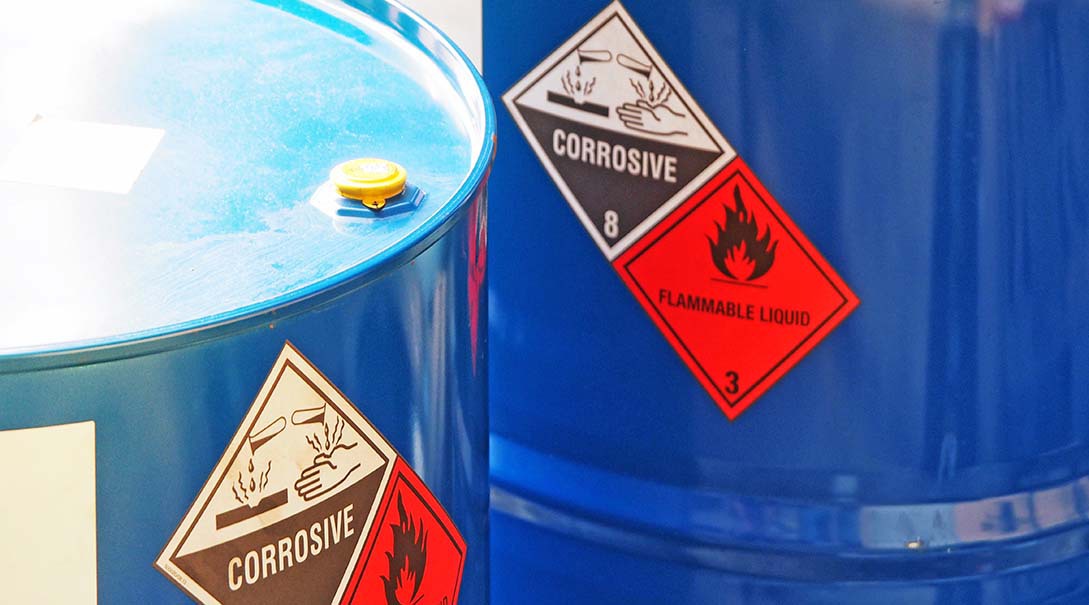RCRA, otherwise known as the Resource Conservation and Recovery Act, was a law passed to enforce rules and regulations regarding the proper disposal of hazardous and solid waste. It details what qualifies as hazardous waste and ensures that companies, municipalities, and anyone dealing with them disposes of them properly and safely. The act also covers storing, managing, and transporting the waste, which is crucial to your site and the surrounding environment.
Table of Contents
What Is RCRA Hazardous Waste and How Does It Work?
Hazardous waste is waste with properties that can potentially endanger human health or the environment. It can come from anywhere, ranging from batteries to human waste. It also comes in many forms, including liquids, solids, gasses, and sludges. Due to the dangers they pose, waste with these properties must be handled and stored properly. That’s why the RCRA was so important.
RCRA hazardous waste management includes goals such as protecting the environment from the impacts this waste will have, protecting those who come in contact with it, and allowing for safe and effective disposal.
Types of RCRA Hazardous Waste
As previously discussed, RCRA hazardous waste can come in various forms and can come from different sources. Many classifications for this waste go beyond just solid, liquid, gas, and sludge, including F, K, P, and U wastes. Each waste under these categories is deemed hazardous, although some could even be considered toxic.
F and K Lists
The F-List and K-List are wastes that are generated during the manufacturing processes. These processes are generally carried out at a facility.
P and U Lists
The P-List and U-List of wastes are usually related to unused, expired, or spilled chemicals. Since there are so many types of waste that could be deemed hazardous, RCRA has set out these guidelines to help manage and dispose of these.
Compliance and Safety Training
Since it can be challenging to deal with hazardous waste, training is often required to go through how to handle it. For those working directly with dangerous waste, the EPA requires annual training, as it helps employees learn RCRA regulations and protect themselves while dealing with these hazardous materials.
The RCRA training is an in-depth course on identifying, storing and managing hazardous waste from the time it is created to the time it is broken down. Additionally, there are a variety of hazardous waste workshops available for employees to get the training they need to deal with hazardous waste.
These courses must adhere to state and federal regulations in an effort to keep everyone, including the environment, safe from potentially fatal incidents regarding waste. These regulations also help cover and teach the basics of working at a large or small quantity generator.
Those working at a large quantity generator must receive RCRA hazardous waste training within six months of being hired. Until they are trained, they may not work while unsupervised. After this training is complete, employees must do it annually to ensure knowledge of the material and any updates that RCRA may enact. Employers must keep records of this training as well.
Does Your Business Generate Hazardous Waste?
If you’re unsure if your business generates hazardous waste, hiring professionals with the proper training to assist is important. They will follow a four-step process for full determination beginning with determining whether the material is a solid waste. During the process, the classification may not always mean that solid waste is physically solid. Rather, it will be classified as solid waste as it carries certain properties set out by the EPA that require it to be categorized in this manner.
They will then determine whether or not the waste is excluded from solid waste regulation, which will be determined based on the type of waste it is, combined with the EPA’s regulations. The professional will then categorize the waste as “listed” or “characteristic,” which will help determine if the waste properties are well known to be a hazard or not.
Spill Response and Waste Management Service Benefits
Emergency spill response and waste management services help supply businesses with the tools and management needs to deal with hazardous waste. Pre-incident waste planning can help minimize the risks of unintended spills and waste while also providing an effective solution should one occur. Additionally, having this level of support provides additional benefits, such as:
- saving time,
- having additional resources during an incident,
- allowing for more flexible decision-making,
- boosting resilience,
- allowing for quicker cleanup, and
- minimizing the impacts that an incident may have on a community or ecosystem
It’s crucial to find the right industrial waste management team to support your needs and provide the services and training needed to help keep your business and employees safe.
Training Opportunities
Overall, RCRA hazardous waste management has employed the regulations and guidelines needed to effectively treat hazardous waste. Not only does this supply employees with the resources they need to deal with hazardous and potentially toxic waste, but it teaches them how to deal with the waste while working the right way.
If you’re in need of hazardous waste training, contact AOTC today. We offer professional, on-site industrial waste management services and training. Our team will work with you to customize a program that meets your needs and keeps you protected.
